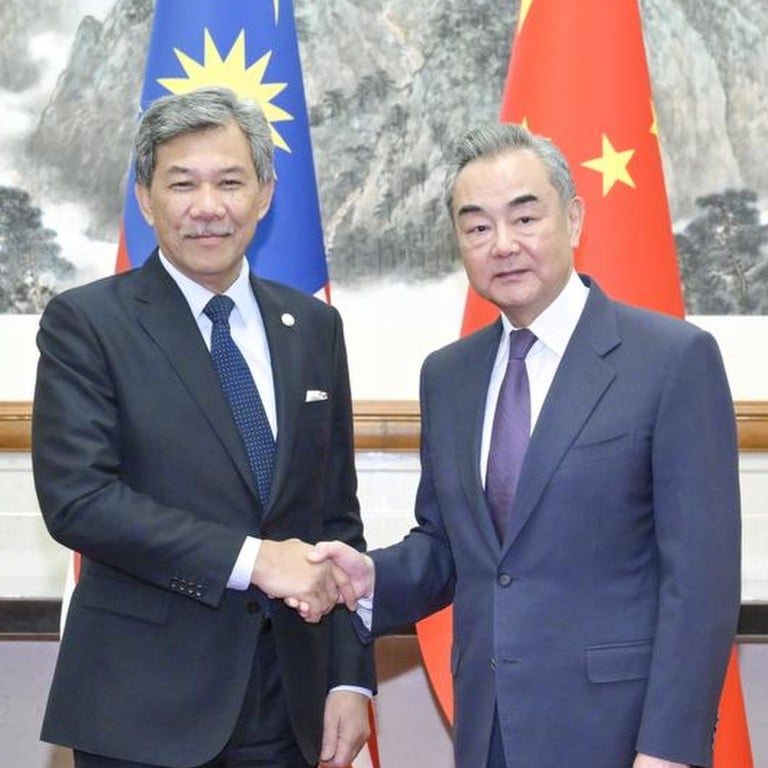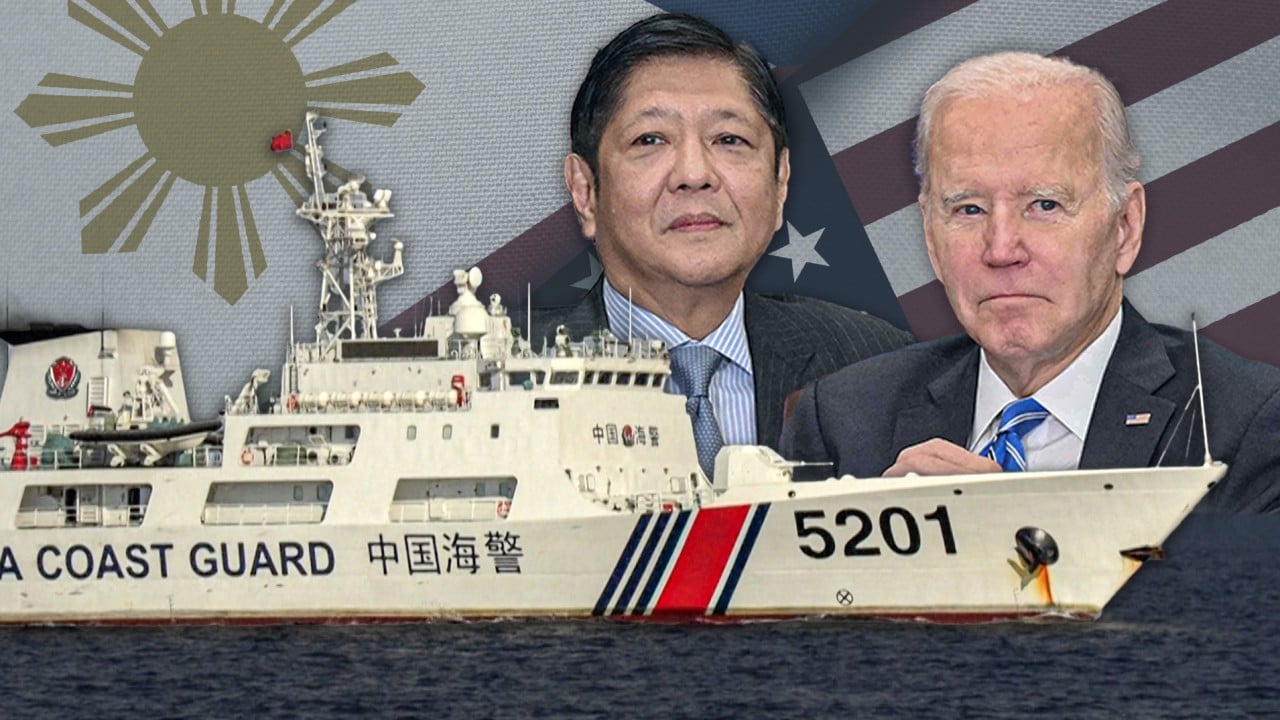
South China Sea: Malaysia opposes ‘external forces’ meddling in disputed waters, foreign minister says in swipe at US-Philippines military exercises
- Mohamad Hasan takes a veiled swipe at US-Philippines military cooperation during a meeting with China’s foreign minister in Beijing
- Comments echo China’s position that dispute should be resolved among regional parties
Malaysia’s foreign minister said on Thursday that his country opposes “external forces” meddling in the South China Sea.
Hasan was in Beijing for the 50th anniversary celebration of diplomatic ties between Malaysia and China, according to a statement issued by China’s foreign ministry.
Chinese Premier Li Qiang to visit Malaysia as countries mark 50 years of ties
According to the Chinese readout, Wang praised Malaysia as “an important member of Asean [the Association of Southeast Asian Nations], a representative of emerging economies, and a positive and stable force in the Muslim world”, and he promised that China would improve coordination with Malaysia and stand up and speak for the interests of the Global South on the international stage.
The readout also said both men discussed strengthening economic cooperation and exchanged views on international issues.
Mohamad Hasan said that Malaysia highly appreciates China’s stance on the Palestinian-Israeli conflict, while Wang said China wanted to work with Malaysia to promote an early, comprehensive, just and lasting solution to the issue, according to the readout.
Disputes between Beijing and Manila over areas of the South China Sea have intensified in the past year, particularly over resupply missions to a Philippines’ outpost at the Second Thomas Shoal.
Manila has denied a “gentleman’s agreement” between Beijing and former president Rodrigo Duterte, and has sought support from its treaty ally the US, as well as Japan.
Xpeng appoints Malaysian firm to sell its right-hand drive EVs in Hong Kong
“We believe differences should be properly handled through dialogue and consultation among countries in the region,” Wu said.
“We oppose external interference, muscle flexing, provocations, and harassment in the South China Sea, and oppose exclusive circles or bloc confrontation.”


